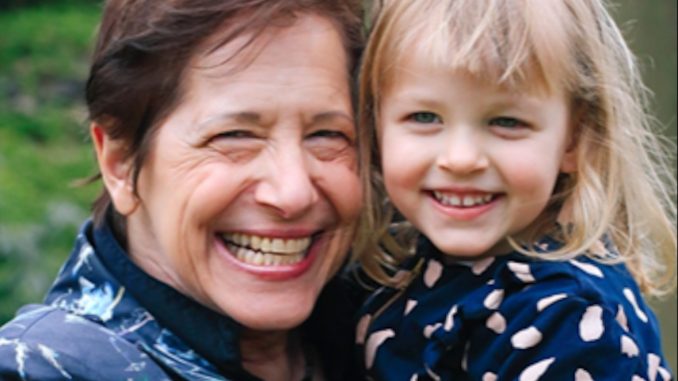
Kathy Hirsh-Pasek, a psychology professor and early education researcher, has always envisioned utilizing her research to help others, like teachers and students of early-education.
“My goal has always been to use science to achieve impact, in the broadest possible sense,” Hirsh-Pasek said.
Now, after working extensively in the realm of early-education research alongside the LEGO Foundation, Hirsh-Pasek and her team have been awarded a five-year, $20 million research grant, to put her research to the test. The grant will support research on how to improve the early-education system for teachers, parents and students as well as collaborate with communities, districts and educators.
Hirsh-Pasek is no stranger to the evolution of education. She’s won awards from every psychological and educational society for her work and has written 17 books and more than 250 published works.
“[Hirsh-Pasek’s] body of work on play and learning informs academic researchers and policymakers around the world,” wrote Richard Deeg, the dean of Temple’s College of Liberal Arts, in an email to The Temple News. “This major grant from the LEGO Foundation validates the importance and promise of applying her research on the benefits of learning through active play to classrooms across the US.”
Hirsh-Pasek and researchers at various universities throughout the country will partner with early-education teachers in California, Illinois, Texas, Pennsylvania, Michigan, New Hampshire and Virginia to explore how Hirsh-Pasek’s Active Playful Learning model, a pedagogical approach to joyful, deeper learning, can be implemented in the classroom.
They’ll apply the model, which recognizes children learn best when actively involved and motivated in the learning process, works in public education, prioritizing under-resourced schools.
“Our education system has been failing underserved children for some time and the disparity in what schools offer students became even greater during COVID-19,” Hirsh-Pasek wrote in an email to The Temple News. “A pedagogical approach that is culturally informed and inclusive, and that embeds the science of how children learn and what they need to learn should raise the boat for all children.”
Hirsh-Pasek and her team utilize a three-part learning equation when working with teachers in early education, which includes kindergarten through fourth grade. The method prioritizes cultural values, encourages meaningful social interaction, engaging activities or lessons and encourages teachers, parents and community members to help students build upon their “six Cs”: communication, content, critical thinking, creative imagination, collaboration and confidence.
The three-part learning equation and the Active Playful Learning model work together to improve early education systems.
Kimberly Nesbitt, a human development and family studies professor at the University of New Hampshire, has worked with Hirsh-Pasek for approximately 10 years. For the past four years, they’ve been incorporating Active Playful Learning into New Hampshire’s school system, and they’ll continue their work together on a larger scale through the LEGO-funded program.
“Teachers are being taught how to use their current curriculum and their current learning standards and to find ways to modify it so that it becomes more active for children, so that children have agency to make decisions about how they solve problems or how they approach a learning task,” Nesbitt said. “They’re not just sitting around passively watching, their minds are turned on and they’re actively involved in that learning process.”
“Guided play is the crux of what we’re using to try to bring about a change in the way we teach what we already teach,” Hirsh-Pasek said. “So in this grant, we are not changing one ounce of curriculum, what we’re doing is helping people see a better way to deliver it.”
During COVID-19, young students lost about one-third of what they would have usually learned in a normal school year curriculum, CNN reported. The three-part learning equation and the Active Playful Learning model work to not only recover learning loss but to improve early education overall.
Although learning loss is harmful and researchers, educators and parents should be attentive to it, hyper-focusing on cramming information onto students can disable teachers more and can take the joy out of learning, Hirsh-Pasek said.
“Our hope is that if we do the best job ever on this, and we’re sure that, we’re going to come up with a product that will be usable by everyone and available to everyone,” Hirsh-Pasek said. “At the same time, we’re going to be able to prepare those kids for what they need when they graduate now and what they’re going to need for the jobs of tomorrow.”
A previous version of this story referred to Dr. Kathy Hirsh-Pasek’s last name as Pasek rather than Hirsh-Pasek. Hirsh-Pasek’s preferred name is now reflected in the story.


Be the first to comment